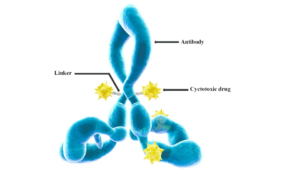
After the setback, what's next for biotech stocks?
While the Nasdaq Biotechnology index saw a huge uplift during the pandemic (+ 77% since March 2020 until reaching a peak in August 2021), it lost 27% during the last six months vs a 11%/4% decline for the Nasdaq Composite and the S&P 500, respectively
While the pandemic highlighted the potential for huge returns for a handful of successful companies, it made it harder for most others to recruit volunteers for clinical studies. Hospitals were busy treating patients with COVID-19 and so diagnoses of other illnesses declined, delaying trial results and eating into company cash piles. Biotech companies listed in Europe suffered even more during the recent sell-off as many of them represent earlier-stage, loss-making companies, which were hit over-proportionally on both sides of the Atlantic. Rising tensions between Russia and Ukraine and almost certain interest rate hikes added further investor concerns more recently and will continue to keep stock market volatility high in the short-term. The increased investor uncertainty also affected the IPO market. While 2021 was a huge year for biotech IPOs (at least in the US), investor demand for newly floated healthcare stocks turned sour more recently as well, triggering a couple of larger IPOs on both sides of the Atlantic to postpone their proposed listing in Q1. Fortunately, however, history shows that while geopolitical crises such as the one unfolding between Russia and Ukraine can temporarily roil markets, they don’t typically have long-term consequences for investors. Will this time be different? Probably not…
Long-term investors are now wondering what the next “big thing” in drug development might be when looking beyond the current uncertainties. When will new drug modalities such as cell- or gene therapy, T-Cell Receptor-based therapies or eventually even mRNA therapeutics start attracting investor attention? Or will the currently still very successful monoclonal antibodies and fusion proteins (incl ADCs, bispecific antibodies and radio-pharmaceuticals) continue to dominate investor attention? Furthermore, medical cannabis may finally build momentum, at least in Germany after the new government announced plans to finally liberalize this market. In the long term, we are convinced that investors will eventually pick up themes such as mental diseases or slowing (and even reversing) the process of ageing.
But also in the short term, we see several trends potentially turning investor sentiment positive again soon: 1) valuations of several high-quality biotech companies appear to be depressed while pharmaceutical companies are more flush with cash than ever before providing a perfect environment for M&A matchmaking; 2) meanwhile, innovation remains a key engine in new drug development with new technologies such as CRISPR gene editing, artificial intelligence, and precision medicines are making their prime time debuts. Innovation abounds and, as it does, investor sentiment can turn. 3) Omicron (hopefully) appears to mark the end of the pandemic so that biopharma sales teams will gradually be able to get out and sell more in person. Patient visits to doctors will pick up, too, increasing diagnosis and prescriptions, further boosting sales. Additionally, companies will find it easier to recruit patients into their clinical trials.
Biotech valuations tend to be highly cyclical. So, maybe biotech is out of favour now, but it will come back, and it may even come back with a roar.
This article was originally published in European Biotechnology Magazine Spring Edition 2022.


 Vetter Pharma
Vetter Pharma International Journal of Molecular Sciences, doi: 10.3390/ijms17040561 JO - s
International Journal of Molecular Sciences, doi: 10.3390/ijms17040561 JO - s